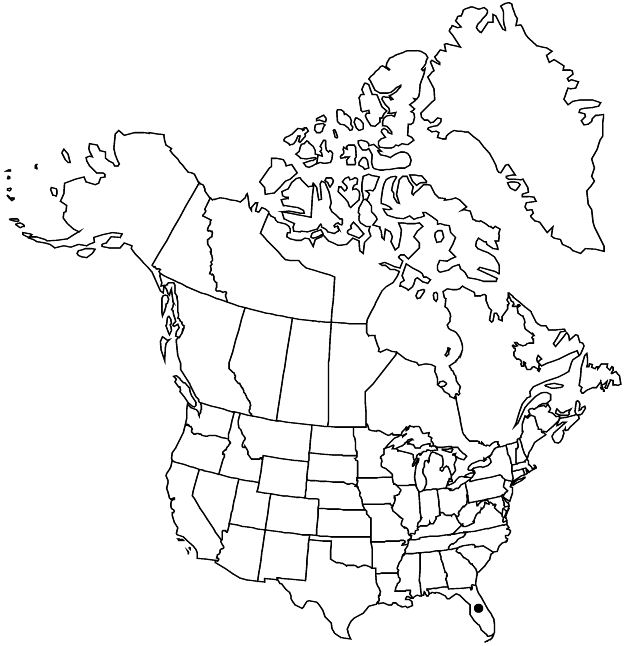Euphorbia mesembrianthemifolia
Enum. Syst. Pl., 22. 1760.
Subshrubs or shrubs, perennial, with thickened and often woody rootstock. Stems erect to ascending, or nearly decumbent in shifting sand, 25–60 cm, glabrous. Leaves opposite; stipules connate, forming conspicuous, ligulate or deltate scale, short cleft or fringed, 1–1.8 mm, glabrous; petiole 0.5–1 mm, glabrous; blade ovate to elliptic often folded along midrib, 5–12 × 3–8 mm, ± fleshy, base slightly asymmetric, truncate to cordate, partially obscuring stem, margins entire, apex usually obtuse, rarely acute, surfaces yellowish to dark green, glabrous glaucous; obscurely 3–5-veined at base, pinnate distally, only midvein conspicuous. Cyathia solitary at distal nodes; peduncle 0.5–1 mm. Involucre campanulate, 1–1.6 × 0.7–1.2 mm, glabrous; glands 4, brown, usually elliptic, occasionally almost round, 0.2–0.4 × 0.5–0.7 mm, fleshy; appendages white, oblong, rarely rudimentary, 0.2–0.4 × 0.5–0.9 mm, distal margin entire or undulate. Staminate flowers 12–20. Pistillate flowers: ovary glabrous; styles 0.3–0.4 mm, 2-fid 1/2 length. Capsules subglobose subtended by calyxlike structure, 1.5–2 × 2.2–2.8 mm, glabrous; columella 1–1.5 mm. Seeds ashen, broadly ovoid, angled in cross-section, faces plump, convex, 1.2–1.3 × 0.9–1.2 mm, obscurely pitted.
Phenology: Flowering and fruiting year-round.
Habitat: Sandy and rocky shores, associated beach scrub.
Elevation: 0–10 m.
Distribution

Fla., Mexico, West Indies, Bermuda, South America (Colombia), South America (Venezuela)
Discussion
Euphorbia mesembrianthemifolia is found in the flora area along the sandy and rocky shores of southern Florida from Pinellas and Volusia counties southward. It is one of the few members of subg. Chamaesyce in the flora area that is a shrub or subshrub.
Selected References
None.
Lower Taxa
"connate" is not a number. "distinct" is not a number."/2" is not declared as a valid unit of measurement for this property.